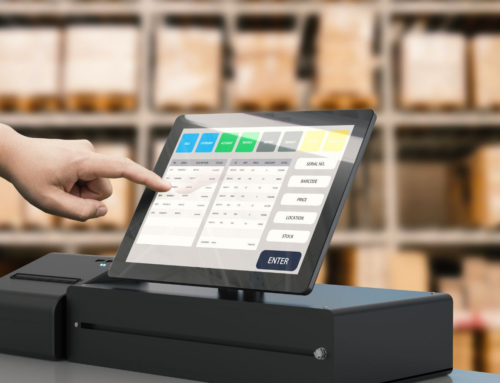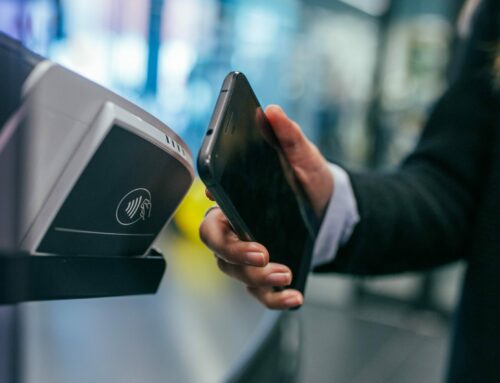BLOGS
Everything you need to know about Travel Merchant Accounts and Payment Processing For Travel Related Businesses

From a business owner’s perspective, getting paid is the most important feature of any brand-customer relationship and travel merchants shouldn’t feel any different.
Possessing the right payment processing or travel merchant account should be a priority for all travel businesses. As travel enthusiasts now return to their adventures as we exit the pandemic, there has never been a better time for your company to analyze its situation.
This guide will discuss everything you need to know about travel merchant accounts and payment processing for travel related businesses, including questions like;
- What is a travel merchant account?
- Why do travel businesses need to prioritize payment processing?
- Why are travel merchant accounts considered high risk?
- How does payment processing work for travel businesses?
- Who is the best payment partner for travel businesses?
Let’s get the journey to smooth payment processing started today!
A Brief Look At The Financials Of The Travel Industry
Before looking at different payment processing options for travel businesses, it is important to understand the current financial situation affecting the industry. Unsurprisingly, this sector was hit harder than most by the pandemic. However, both domestic and international travel are now approaching something like normality once more.
And a quick look at the stats show why travel businesses must pay attention to the importance of payment processing;
- The travel industry was worth $9.25 trillion globally before the outbreak of COVID-19 and can expect to be back at this level before the end of 2023.
- Travel sectors grew by 4% in the year leading up to the pandemic, highlighting stability and steady growth
- The travel industry accounts for around 11% of total GDP in the U.S., while the UK is expected to be above 10% by 2025.
- On average, travel agents can expect to earn $57.917 per year. Workers and companies across the travel sector can earn well too.
- The annual fraud losses for travel intermediaries are $25bn, including $11bn for online travel agencies (OTAs).
The statistics, combined with facts like there being over 1.4bn international arrivals worldwide each year, show that travel businesses can expect to process a lot of transactions and deal with large volumes of money.
However, the details surrounding fraud are particularly concerning for payment processing companies. In fact, most will consider companies that fall under the umbrella of ‘travel businesses’ to be ‘high risk’. This is something you’ll need to accept when looking at prospective travel merchant accounts.
Why The Right Payment Processing Solution Is Vital
As a travel business owner, the right payment processing solution will ultimately help boost your bottom line. This is because it can;
- Provide a convenient option that is accessible to a greater number of clients.
- Ensure quick and seamless transactions.
- Save you money by preventing chargebacks and fraud.
- Protect your reputation by maintaining high-quality operations.
- Give you peace of mind.
All travel businesses should take this aspect of their ventures seriously, particularly as the shift towards digital transactions is set to gather pace in the post-pandemic return to travel.
What Are Travel Merchant Accounts?
Travel merchant accounts are probably the most commonly used solution by travel businesses. Merchant account services will vary from one travel business to the next but their primary function is to facilitate transactions via online, telephone, and in-person channels. The equipment used by a company may include online payment processing software known as a payment gateway, in-store POS terminals, and a variety of other features.
Travel merchant accounts may be used by travel businesses across all parts of the industry. All companies must ensure that their services comply with Merchant Category Codes (MCCs) and relevant regulations. Some of the travel businesses that require merchant accounts include but are not limited to;
- Airlines
- Hotels and resorts
- Tour operators
- Transportation firms
- Travel agencies and OTAs
In many ways, travel merchant accounts are no different to merchant accounts in other businesses. However, they are designed with the high-risk business models in mind, which enables travel businesses to gain access to services even when traditional merchant service providers would reject their applications.
With the right plan in place, companies in this field can process transactions and get paid from customers while simultaneously automating receipts and other tasks. Therefore, they can bring convenience, consistency, and a sense of control to the table.
Aside from heavily influencing customer experiences, travel merchant accounts can impact employee workloads. When there are fewer issues to worry about in relation to payment processing, they can place added focus on productivity and providing improved client services.
The Cause For Concern With Accounts For Travel Merchants
When looking at merchant accounts for the travel industry, it’s important to know that generic platforms will not provide the necessary attributes. Conversely, though, the products built for the travel industry are likely to charge quite high fees to compensate for your high-risk categorization.
Travel merchant service providers consider you high-risk because of the chargebacks, the fact that many travel businesses fold each year (not least at a time where bankruptcies are up 26% due to the pandemic), and the fact that customers often change their minds and seek refunds after booking vacations in advance. The fact that the majority of your transactions are valued at over $50 is another reason why your company may fall into the high-risk category.
While the perceived level of risk may vary greatly between companies (hotel reservations with no fee cancellations, for example, can be seen as riskier than a locked-in flight), most travel firms will be seen as a risk to some degree. Aside from this, travel companies must be aware of the following issues;
- Fees – You may encounter transaction fees, monthly fees, payment gateway transaction fees, payment gateway monthly fees, discount feeds, chargeback fees, and application fees.
- Processing – You need to consider the volume of transactions that can be handled, as well as the speed offered. Fast approval times at the application stage are useful too.
- Security – As mentioned, fraud is a major concern. However, cyberattacks are another issue that costs companies trillions every year. The right protection is pivotal for all travel firms.
- Accessibility – Travel merchants also need to know that payment processing and merchant services are available across multiple devices and will facilitate payments in multiple currencies.
- Support – It’s always best to choose a merchant services provider that won’t encounter problems. Still, knowing that 24/7 support is available can make a world of difference to your ongoing venture.
It is always necessary to confirm that travel merchant services come from a reputable company that has a solid reputation for supporting companies in the field of tourism. After all, choosing the wrong operator could lead to delays, disruptions, and disaster – not least to mention the impact that excessive transaction fees could have.
Still, when you choose the right payment processing service for digital and real-world transactions, the post-pandemic health of your travel firm will look a whole lot brighter.
Choosing The Right Payment Processing Partner For Travel Businesses
Travel business owners looking for the perfect payment processing partner must also familiarize themselves with what to expect during the application. You will probably need to provide your Employer Identification Number, previous bank and processing statements, check or bank letter, agreements with the airlines or hotels, and articles of incorporation. If a provider doesn’t want to see these things, you should ask why – after all, they know that the industry is high-risk and should want to protect themselves. It’s always better to submit everything upfront vs after the fact to ensure you can focus on sales and not payment processing issues!
While there are several good options on the market, Vector Payments has established itself as one of the best for travel companies in the post-pandemic era. Some of the most important factors include;
- It has operated for over 30 years, providing its reliability and reputation as well as an ability to evolve alongside tech advancements.
- The platform has dedicated services for the high-risk and hard to place high-risk businesses, which can cover all travel businesses.
- Payment processing solutions can cover POS terminals, retail payments, EMV sales, virtual terminals, API integrations, and also ApplePay/SamsungPay.
- Its travel industry services, including those for private jet charter firms, are tailored specifically to handle the unique challenges facing travel firms.
- The company’s tailored services and low transaction fees offer excellent value for money for a comprehensive approach.
Versatility is one of the other main reasons to choose Vector Payments, not least if your travel business will look to expand into other markets or areas of the travel sector. Given that nobody can predict what will happen in this post-pandemic era, this is a very useful safety net because nobody wants to choose one payment processing service only to discover another switch is needed in a few months.
A stable solution that can serve your business for many years will be the best choice for your company, as well as its employees and customers. When combined with the knowledge that it has the necessary features, can be customized to your needs, and processes transactions quickly, success is assured.
To get the very best out of any payment processing service, you can take the additional steps to keep customers happy and avoid fraud or chargebacks. This can be achieved through building a better website, investing in good security and customer care, defining your returns policies, providing clear communication, and generally providing the best service to all clients.
The Final Word
The travel sector as a whole is slowly but surely finding its feet again after the prolonged problems caused by the pandemic. While payment processing won’t be the only key feature for companies to master, it has become evident that making the right choice will be vital for protection and profitability.
Investing in a fast, reputable, and fairly priced model should be an immediate priority for all companies in this field.














